The exclusive use of this material is reminiscent of the desk inlaid with pewter, known as the desk of Marie de Médicis, present in the Louvre Museum. This marquetry in silver tones is characterized by a harmonious composition of interlacing, floral, leafy and foliage motifs carried out in perfect symmetry. As such, this desk is characteristic of the productions of the second half of the 17th century when this ceremonial piece of furniture prized by the nobility was adorned with marquetry giving it a luxuriant appearance.
Its originality comes from the uniqueness of the pewter used to adorn this elegant piece. It rests on eight refined sheath legs finished with blackened wooden rave legs. This base is connected by two spacers in ixe animated and also inlaid. The large pewter oval in the center of the top is framed by stylized heart figures in marquetry as a counterpart, particularly in the four spandrels. The edge of the top is partly inlaid, which is the only exception on this desk. Opening with seven drawers, three of which are narrower.It also opens with a central recessed leaf.
The so-called Mazarin desk originated at the beginning of the 17th century. Like many pieces of furniture, it is undoubtedly the result of a transformation: here from the money changer's table. Despite this particular name, it would seem that Cardinal Mazarin never sat in front of one of these offices. Indeed the cardinal died before the appearance of the eponymous office. The older ones, like the one shown here, are small in size.
Louis XIV period. Usual restorations, locks and keys added. Originally this office did not have a keyhole. During a later restoration, keyholes were added. We have decided to keep the history and originality of this desk by presenting it without these additions.


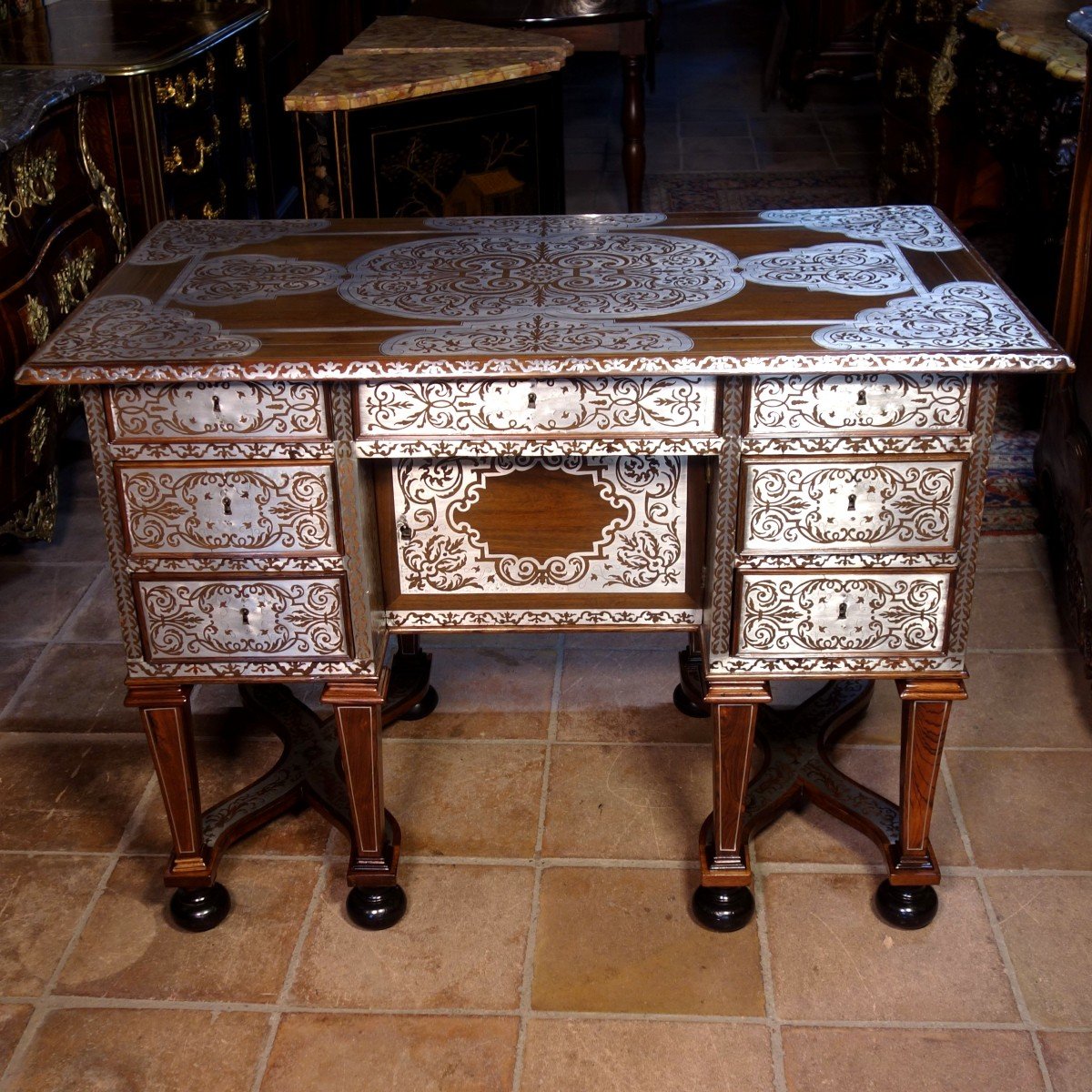
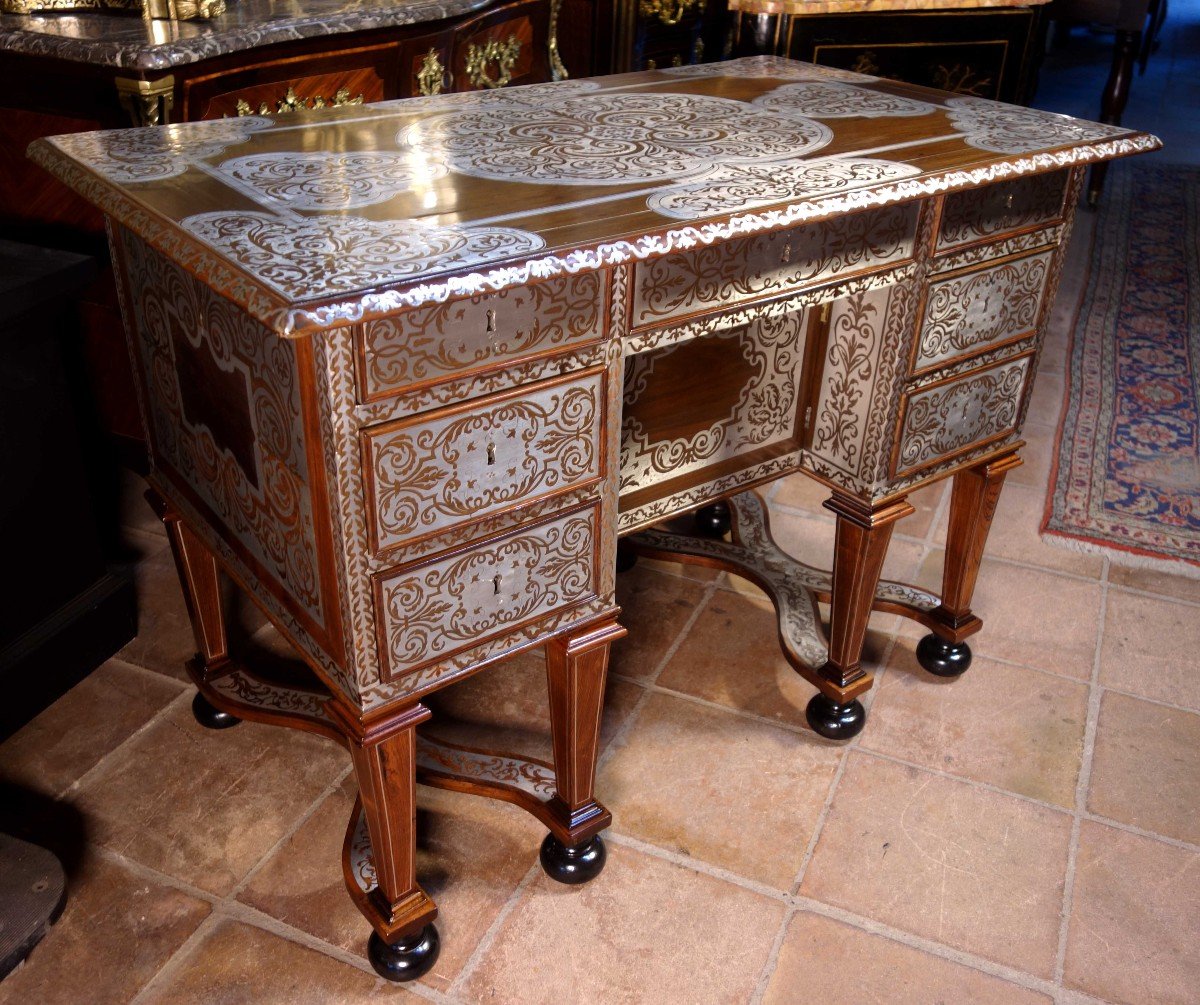
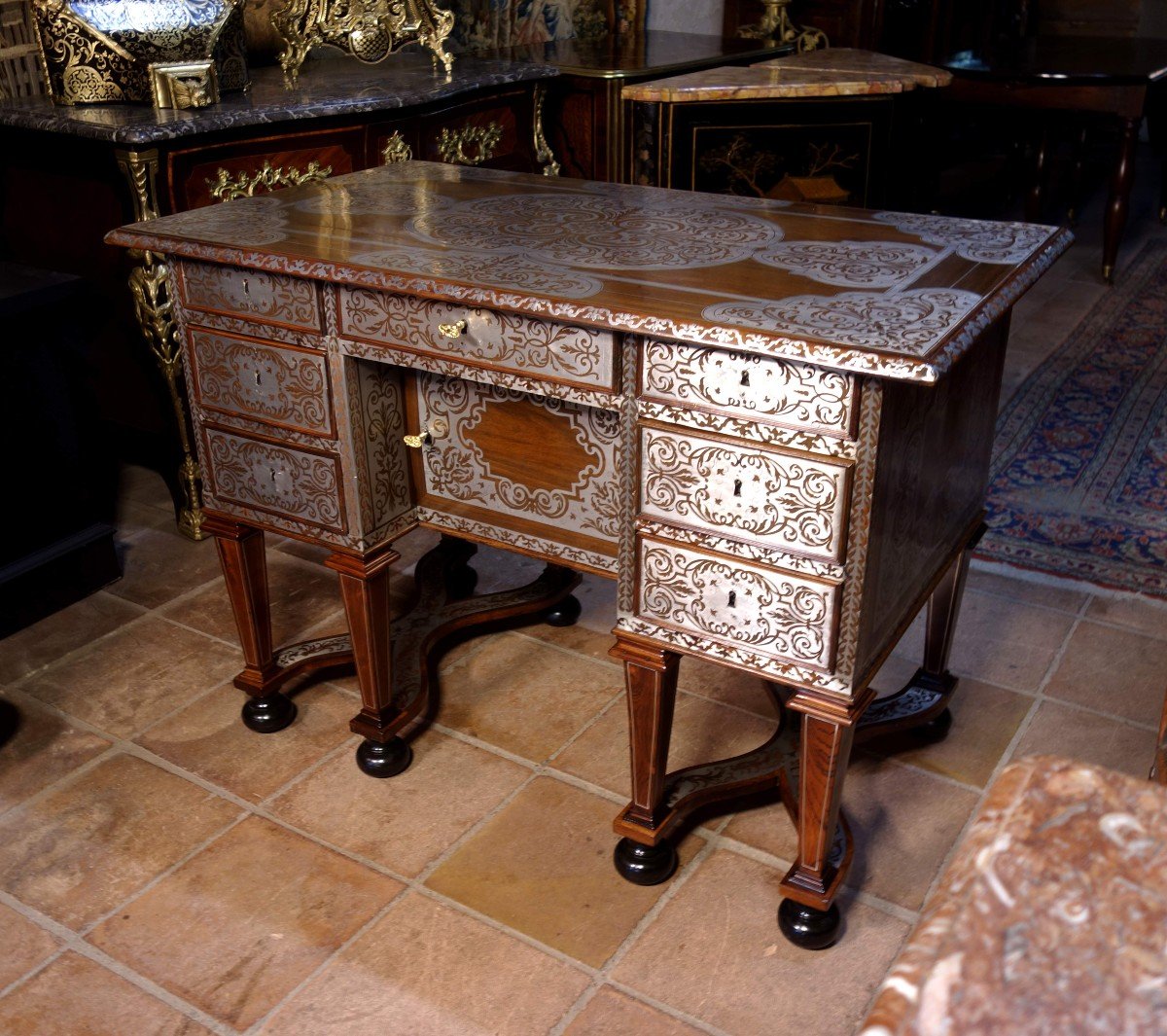

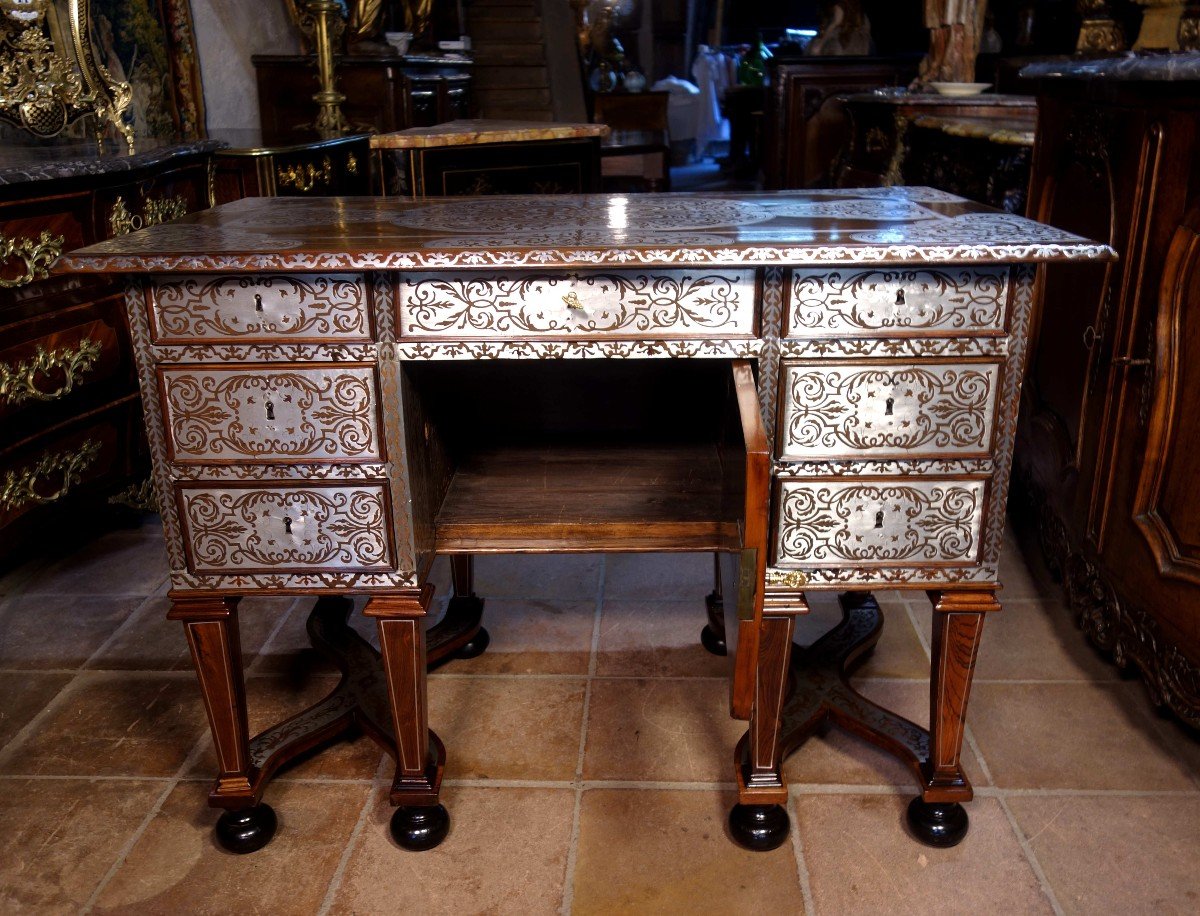
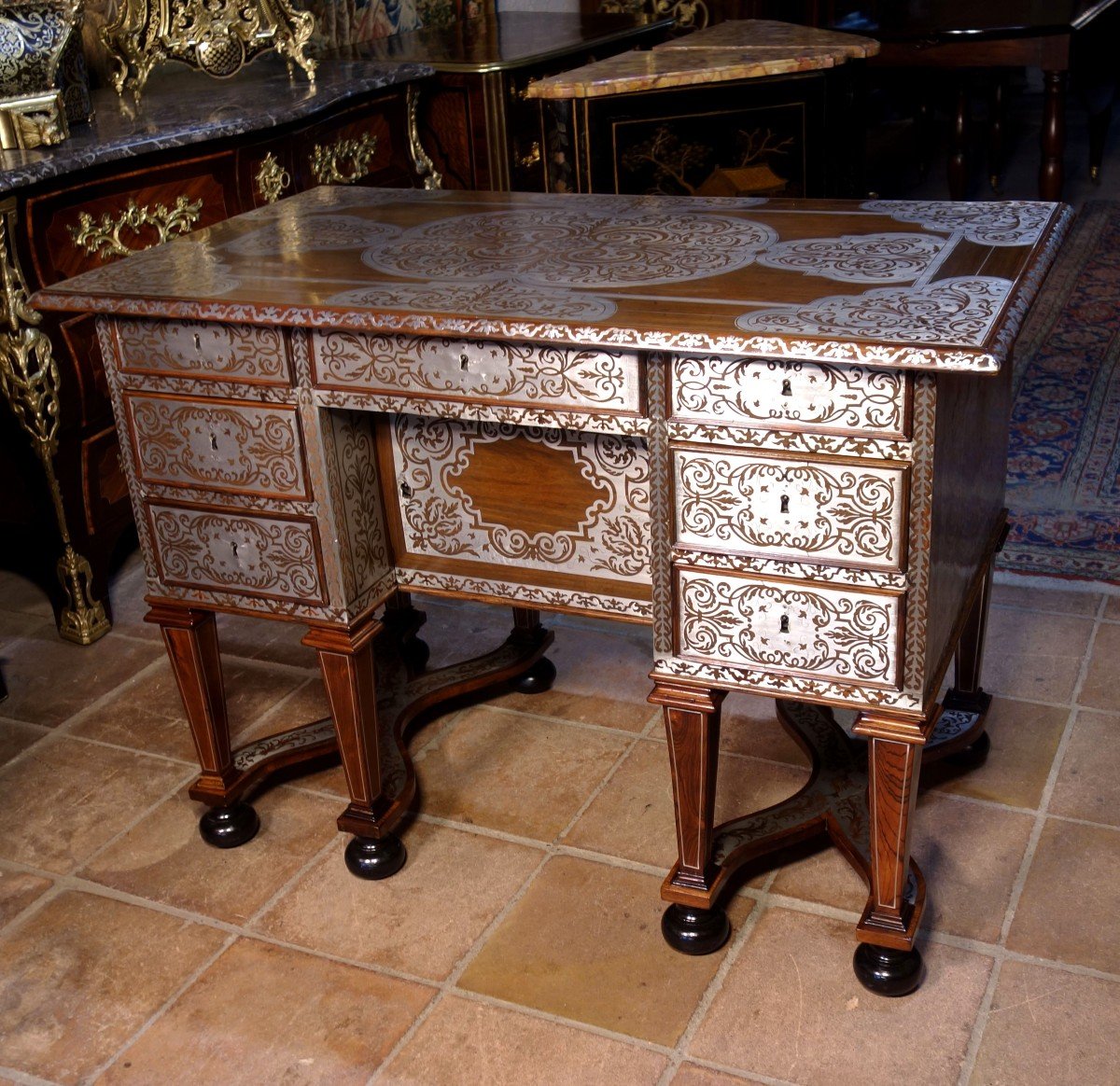

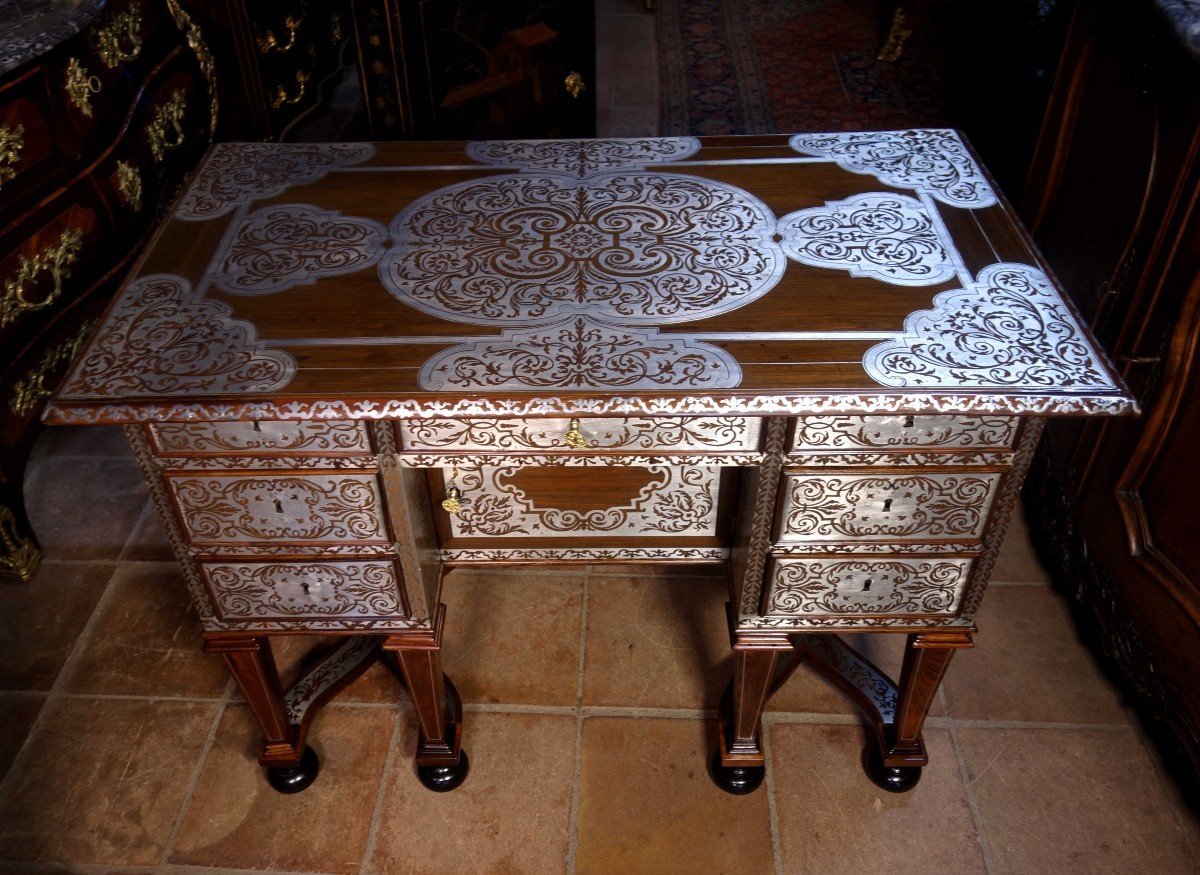
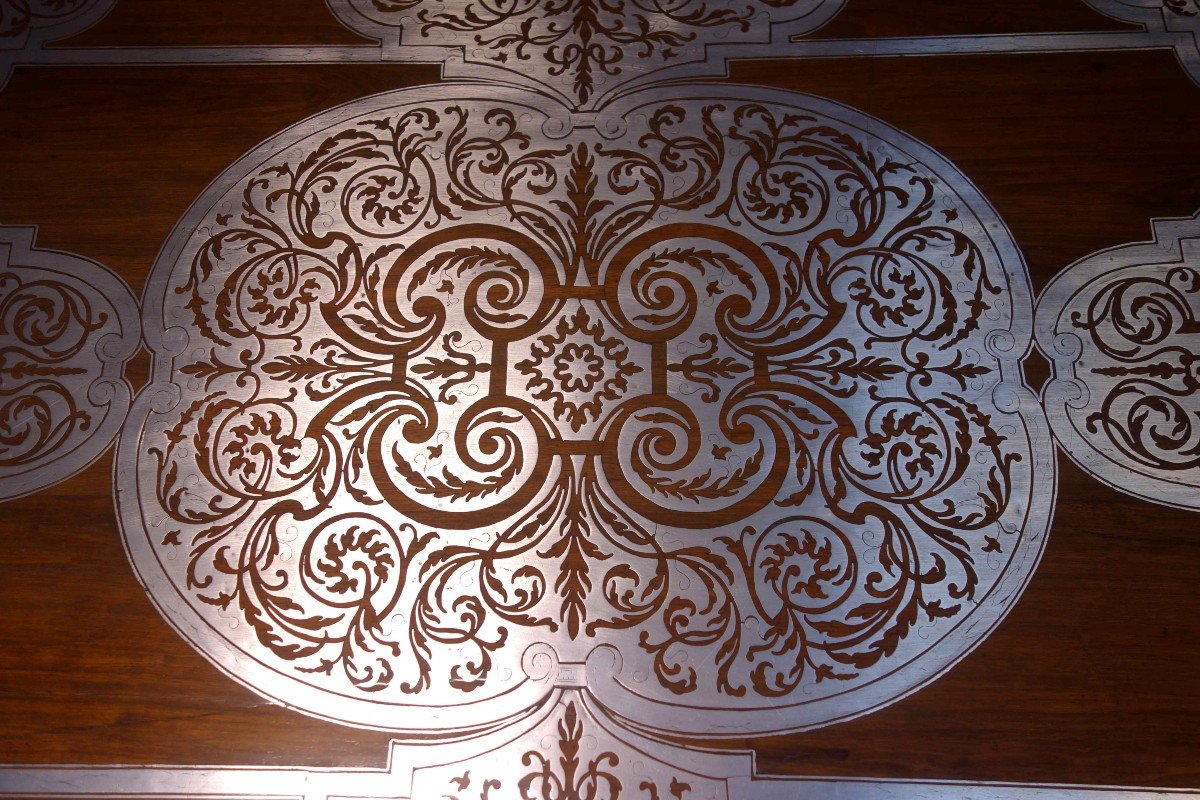
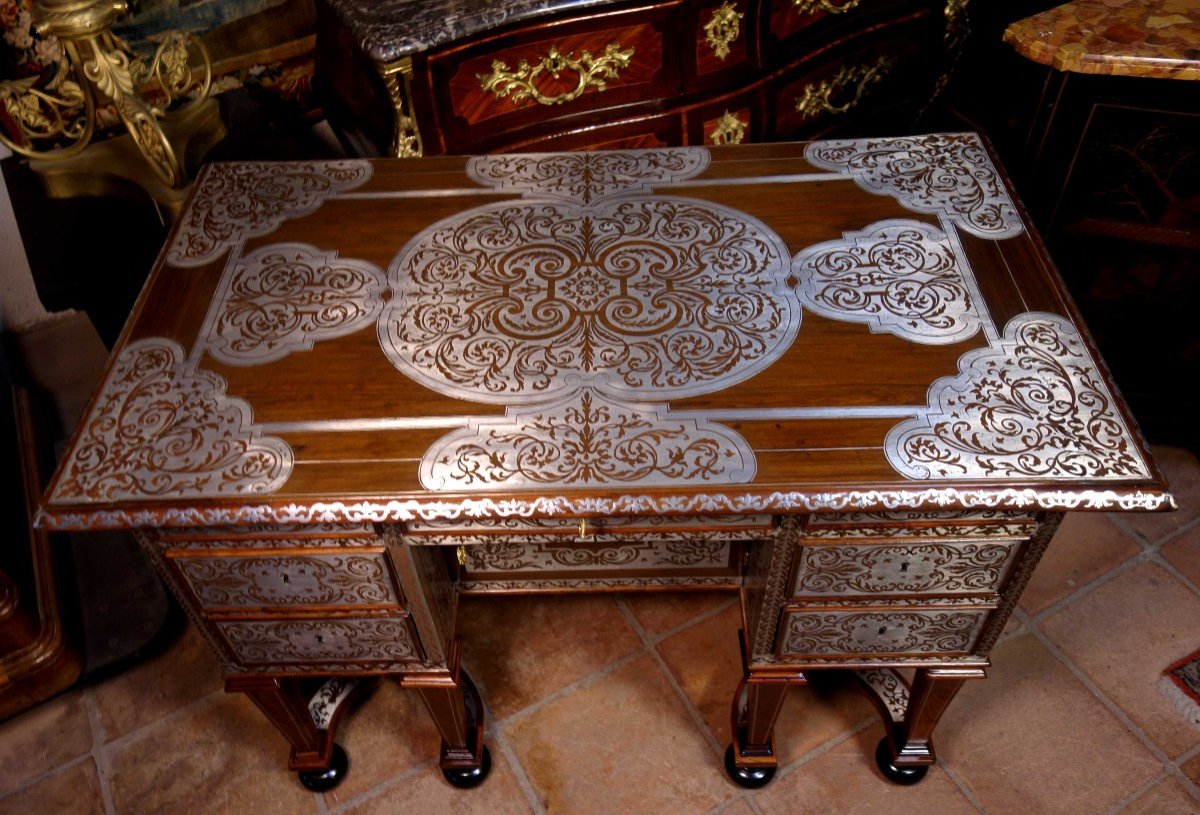

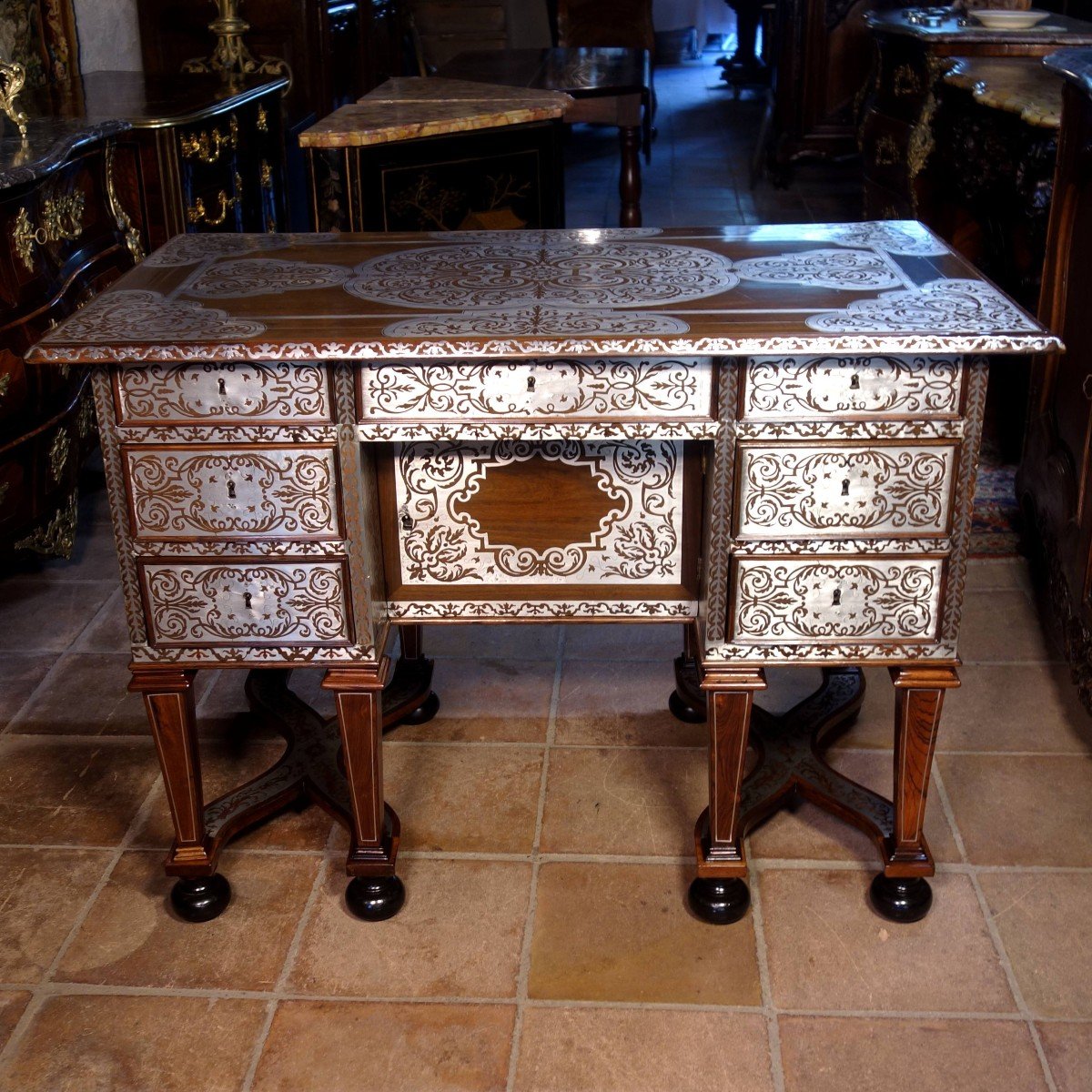















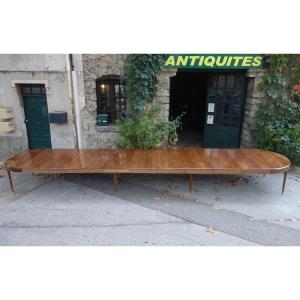

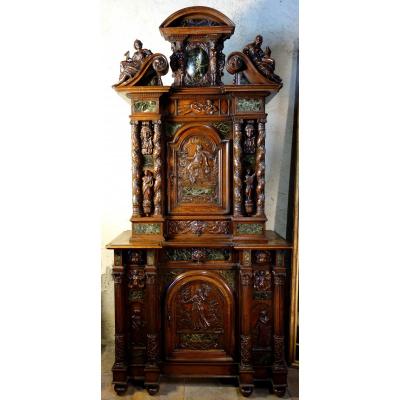
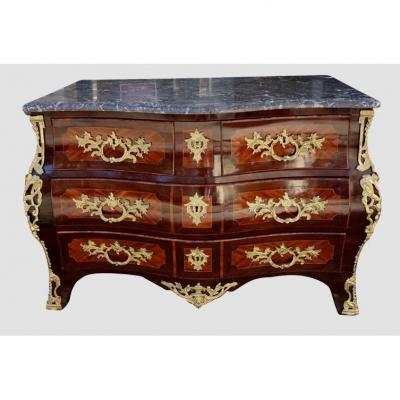


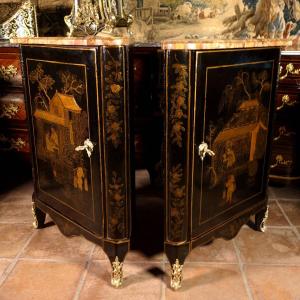
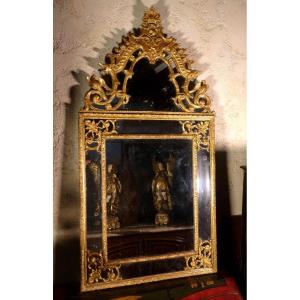



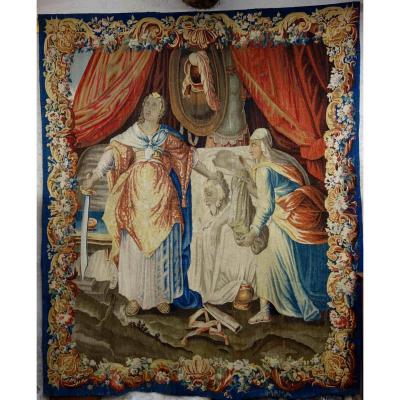
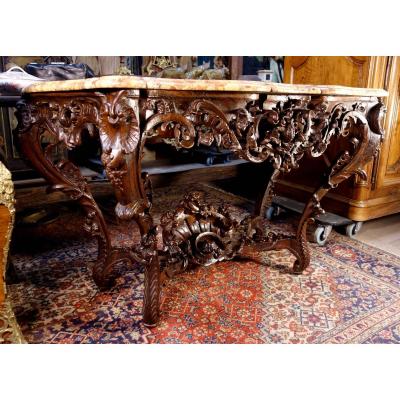
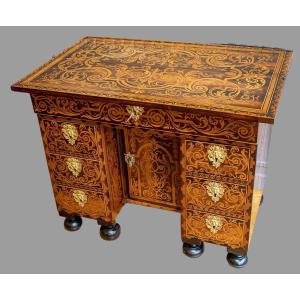


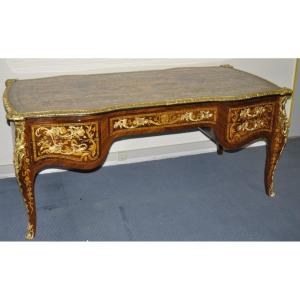




 Le Magazine de PROANTIC
Le Magazine de PROANTIC TRÉSORS Magazine
TRÉSORS Magazine Rivista Artiquariato
Rivista Artiquariato